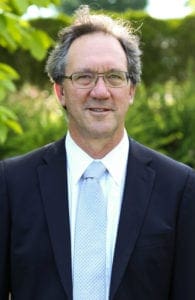 Did you know that the Covid-19 virus was created by the emergence of 5G networks? I know this information may come as a bit of a shock to you, but it’s from a doctor in the U.S., so, you know, we have to take it seriously.
Did you know that the Covid-19 virus was created by the emergence of 5G networks? I know this information may come as a bit of a shock to you, but it’s from a doctor in the U.S., so, you know, we have to take it seriously.
Dr. Thomas Cowan claimed in a video released on March 12 – one that quickly went viral – that viruses are the waste from cells that are poisoned. Some of the poisoning, he said, comes from electromagnetic fields.
Hmmmm. What other interesting facts about our pandemic can be found on the internet and in social media? A recent roundup on CNET news found these common claims:
- If you can hold your breath for 10 seconds, you don’t have a coronavirus infection.
- Drinking water will flush the virus from your mouth.
- Avoid ibuprofen if you’re infected with the coronavirus.
- Warm weather will get rid of the coronavirus.
- Using a face mask will protect you from getting the coronavirus.
- Garlic or herbs will cure or protect you from the coronavirus.
- Spraying alcohol or bleach on your body will protect you.
The thing these claims have in common? They’ve all been debunked, and yet they live on in social media, infecting vulnerable minds.

This pandemic has already shown us a great deal about human nature, including some really positive signs of courage and generosity. It has also shown, however, how easily some people can be manipulated into believing even obviously ridiculous claims. And it has shown us that the popular social media – Facebook, Twitter and the other biggies – have either limited desire or limited ability to block such harmful misinformation.
Social media has rewritten the rules of communication, and as someone who worked his way up through the rigours of legacy news media, it’s been quite the adjustment. Back in the day, there were heated debates in newsrooms over the boundaries of taste, which words were fit to print, and – most importantly – how well anything presented as a “fact” had to be vetted.
Some of you are old enough to remember an anecdote from All the President’s Men, Woodward and Berstein’s landmark account of their work on the Watergate scandal. The reporters were told anything they wanted to print had to be confirmed by three sources (and, through a cock-up, they still managed to get one important story wrong).
Today, there is no such thing as three-source confirmation (except in a handful of the most-established news media, which ironically get slagged as purveyors of “fake news”). In fact, it’s easy to find stuff on social media that hasn’t had one source confirmation. It’s made up, like Dr. Cowan’s wild-eyed paranoid conjecture on 5G. And yet, without the once-accepted rules of vetting, a lot of these claims are laid out there as though their truth is beyond doubt.
Now, anyone who cares to conduct due diligence can filter through the BS without too much difficulty. Sadly, it seems a lot of people don’t do that, instead grasping onto claims that support their own confirmation bias. In other words, if the claim is consistent with what I think, then I’ll take it as fact.
There’s a part of me that believes we should perhaps let natural selection take its course. If people are that careless with the information they consume, then perhaps we should just stand aside and let them face the inevitable consequences.
That’s just a part of me, though. Another part realizes that whatever consequences these people might face might also have significant ramifications for the rest of us. It’s a bit like Donald Trump believing the U.S. can be back in business by Easter; others – potentially many others – will be the ones who suffer the fallout from such recklessness.
Facebook has for years been trying to lasso the wildest bulls. Last year, it rolled out a series of announcements aimed to promote more trustworthy news sources, and to throttle groups that spread misinformation. Unfortunately, it feels like just putting a finger in the dike while the malicious lies flood in from other sources.
It begs the question: If social media is unable to find an effective way to stop the lies and tomfoolery, then maybe the problem isn’t the mischief-makers who are planting claims. Maybe it’s the social media themselves that are the problem.
What should we do about that? Can our society live with the growing harm that results from this avalanche of nonsense? Or are we ready to say enough is enough?
If you’re as sick of it as I am, you might be getting close to supporting more draconian measures, up to and including shutting some social media down.
Those are tough words for a free-speecher like me to write. But advocates of free speech know that the right to free expression can only be sustained when people act responsibly. Right now, there are too many scofflaws on the loose. They’re making a mess for us all, one that is eroding the very foundations of our civilization.
Let’s talk about what we need to do to bring these liars to heel.
Veteran political commentator Doug Firby is president of Troy Media Digital Solutions and publisher of Troy Media.
The views, opinions and positions expressed by columnists and contributors are the author’s alone. They do not inherently or expressly reflect the views, opinions and/or positions of our publication.
